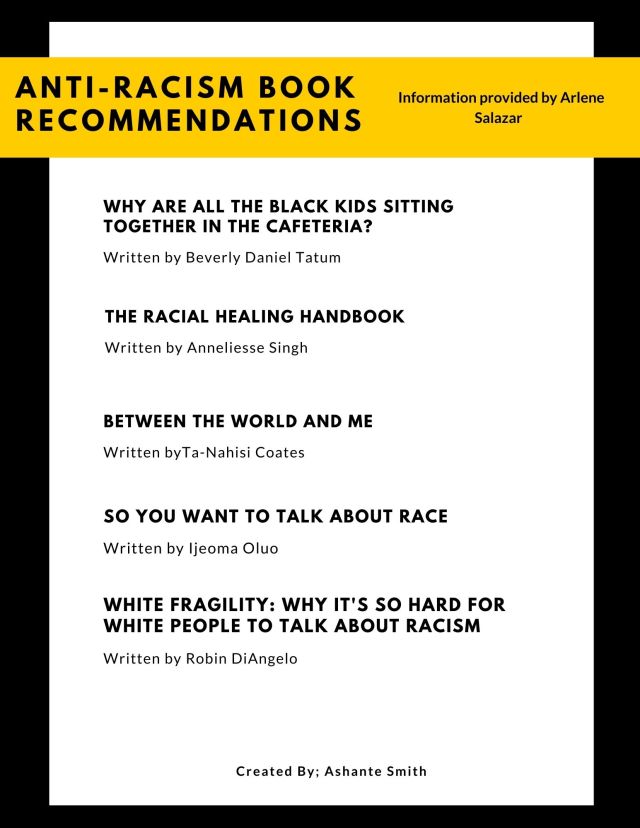On June 25, 2020, Texas State University’s president, Denise Trauth, issued a letter explaining the combining of the Office of Equity and Inclusion(OEI) with Student Diversity and Inclusion(SDI) that took place at the beginning of the month.
According to President Trauth, the combing of the two allows the university to collaborate across the institution and elevate its diversity, equity and inclusion(DE&I) efforts. This new transition is known as the Institutional Inclusive Excellence office.
Given the broadness of DE&I efforts at Texas State University, Sherri Benn, Ph.D., Assistant Vice President of Institutional Inclusive Excellence for Student Initiatives, spoke on how the university plans to move forward following an Executive Order issued by President Donald Trump on September 22, 2020.
In the Executive Order on Combating Race and Sex Stereotyping, President Trump states that current DE&I training in workplace environments and institutions that reflect ideologies like “men and members of certain races, as well as our most venerable institutions, are inherently sexist and racist” will not be supported with federal grants.
Since the institution receives federal funding, Texas State University halted all DE&I workforce training for faculty and staff–until October 27,2020–to reflect on how it can be in compliance with the Executive Order by developing a committee to review the training material.
By implementing specific goals in the institutions framework and giving faculty proper training in relation to DE&I to carry over into their classrooms, Benn believes this creates an environment for underrepresented students and staff to feel included.
“The university decided we’re committed to these trainings. We want to have our faculty and staff trained on these things so they can respond to our student’s needs,” said Benn.
To make sure that Texas State is also representative beyond student organizations and DE&I training, students pushed the university to develop a Latino Studies and African American Studies(AAS) minor program.
Directed by Professor Gloria P. Martinez Ramos, the Latino Studies minor was launched in Fall 2018. In the fall 2019 semester, the AAS minor program was launched under the direction of Dwonna Goldstone, Ph.D.
Goldstone’s area of specialty has also been influenced by her southern parents growing up in the Midwest and three Black professors she had during undergrad.
“My mother was a teacher and she just really wanted us to know Black history,” said Goldstone. “It meant something to me to have these Black professors taking me under their wing, pushing me and encouraging me.”
Experiencing the importance of having Black professors, Goldstone believes that she has created a safe space for the Black and brown students that enroll in her classes.
“Students were pretty adamite about having a space where they could talk, so I’m happy to create a space where they feel safe…to discuss race and what it’s like to be Black or brown at Texas State and in Texas,” said Goldstone.
Even though the majority of student are persons of color (POC), she appreciates white students that come into her classes as well, finding that they benefit in this environment.
“I appreciate that they mostly listen and not dominate the conversation,” said Goldstone. “I’m glad that the white students that come into my class seem to be there to learn and it still feel like a safe space for Black and brown students.”
Keeping with the passing of knowledge is Arlene Salazar. Salazar has been a research, instruction and outreach librarian for the last twenty plus years at Texas State University.
At the beginning of 2020 Salazar was recognized as the staff recipient of the Excellence in Diversity and Inclusion award for her work in diversifying the universities library collection.
“This is something I’ve been doing for years and my efforts were primarily focused on the juvenile collection which has extended over into the regular collection” said Salazar.
Since being at Texas State University, Salazar has made an effort to connect with staff and students at events related to DE&I so that people of aware of the work done at Alkek Library as it relates similar efforts.
“It takes some studying to see what’s going on in the different fields.. and I like to make sure our collection reflects what’s going on in the world,” said Salazar.
Throughout 2020, the year was marked by Black Lives Matter protest after several murders of Black men and women. At the height of protest, Salazar saw many list online covering anti-racism books. The following list are books recommended by her.

In 2010 Texas State was recognized as a Hispanic serving institute. Below is a graph to represent the percentage of students based on ethnic identity.

Taking into account all students of color, Texas State University serves as a majority minority institution making inclusion an important matter even though faculty demographics aren’t as diverse.

The following graphics are supplemental information in relation to the above article.


*Southwest Texas State College is one of the former names of now Texas State University.




